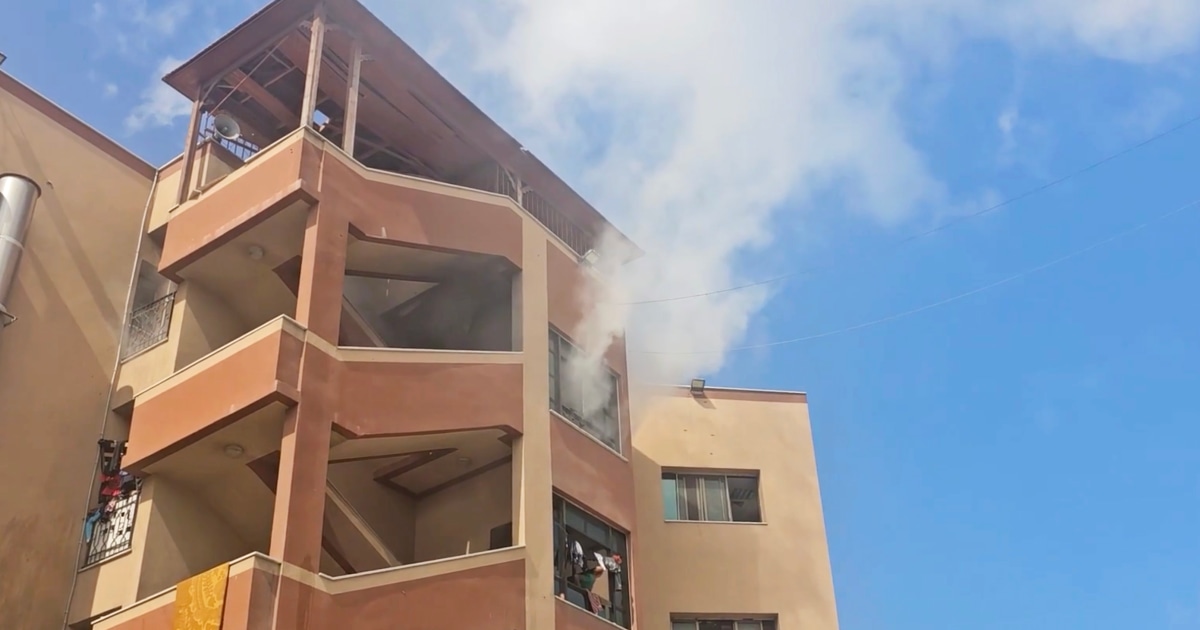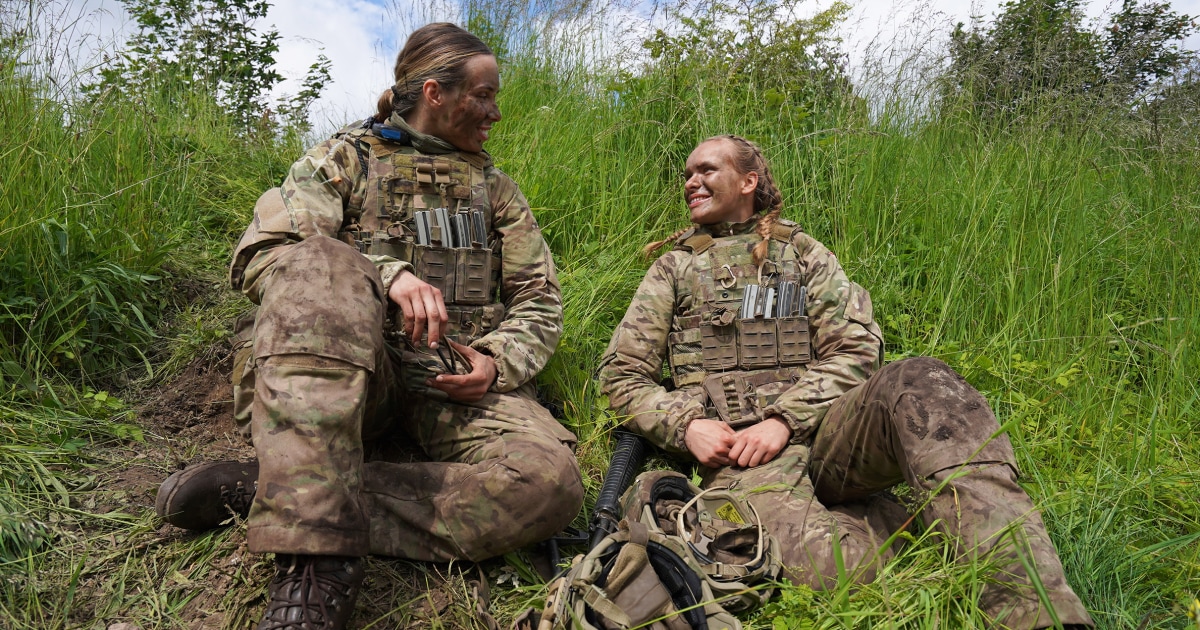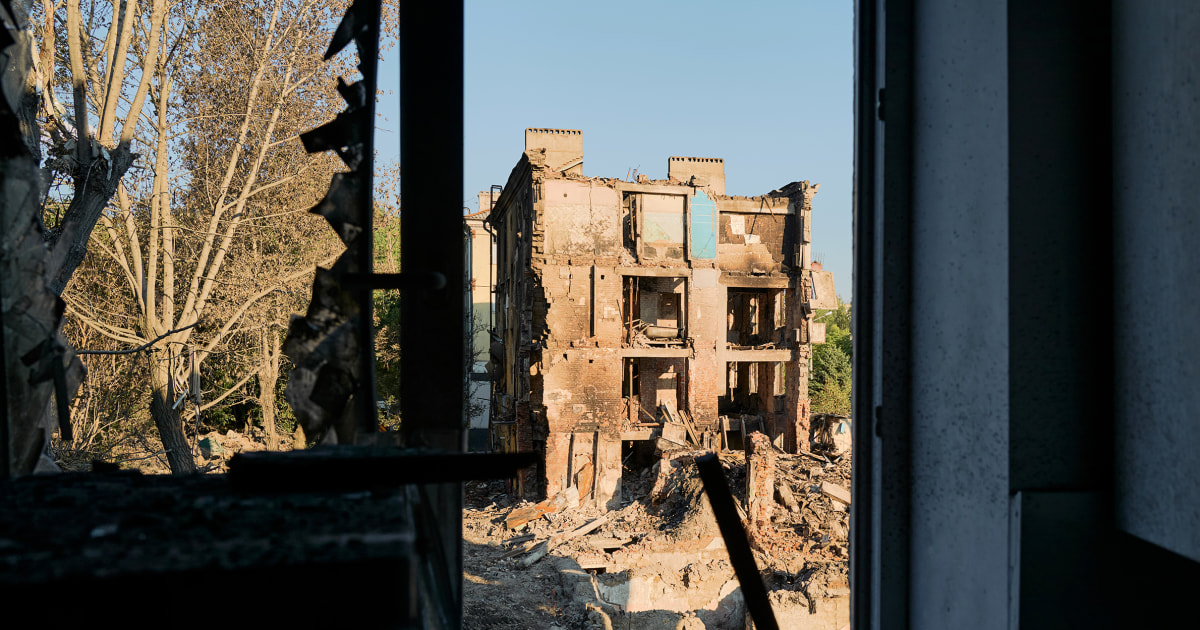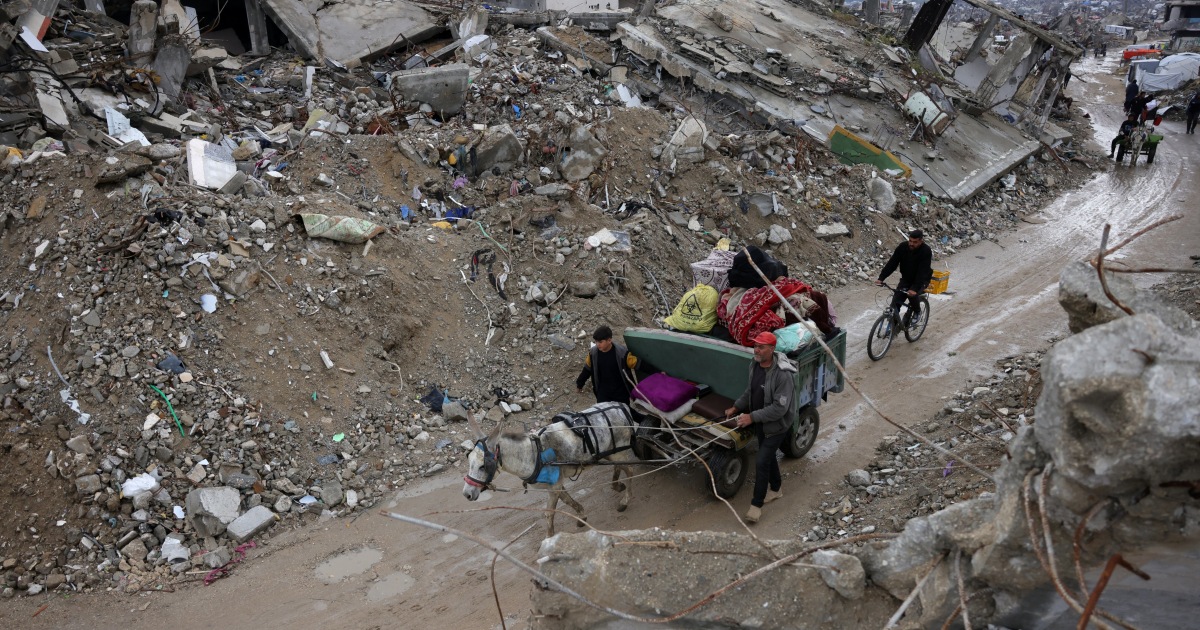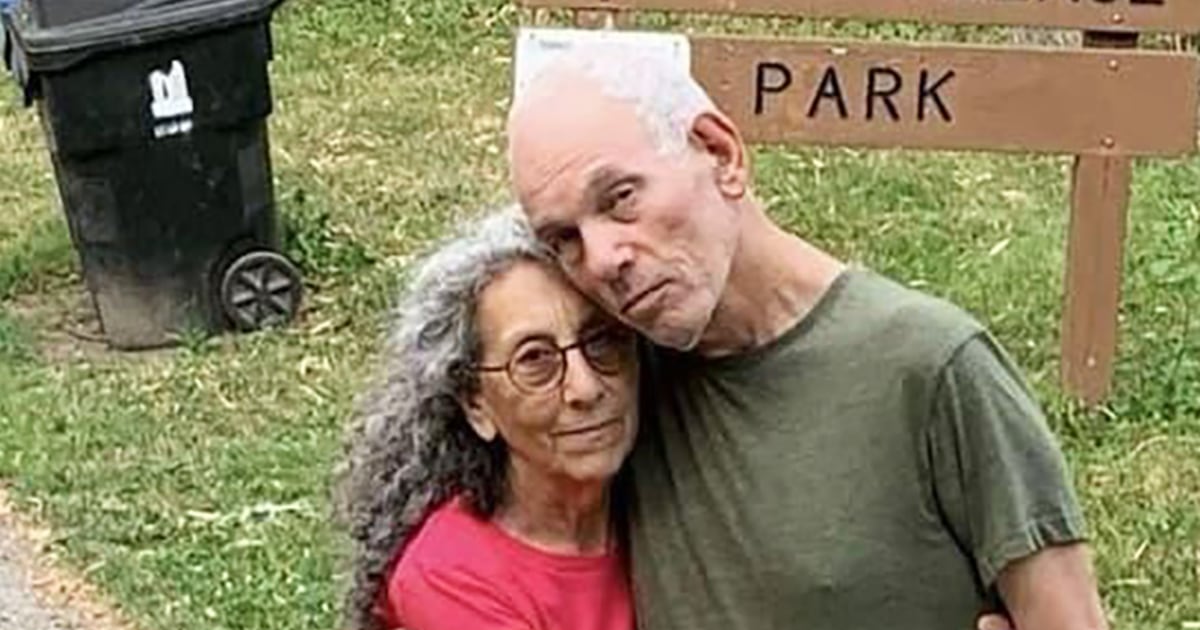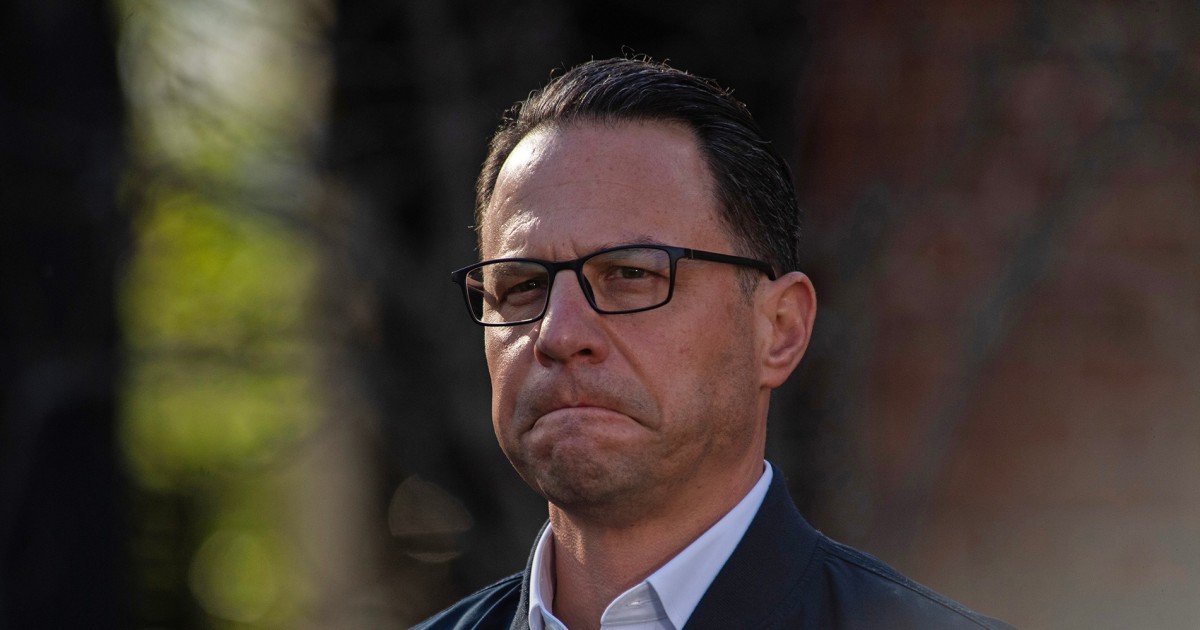JERUSALEM — The Israeli military struck Nasser Hospital at least four times during its morning attack on southern Gaza that killed 22 people earlier this week, according to an NBC News analysis of newly obtained video.
The findings come as Reuters — whose cameraman Hussam al-Masri was among five journalists killed Monday in the Israeli strikes — said the Israeli military was “fully aware” that its team and other journalists were operating from the hospital in southern Gaza.
The agency told NBC News on Wednesday that it had offered daily live feeds to its news clients from that location in recent weeks, but earlier in the war had stopped sharing its teams’ exact locations “after so many journalists were killed in IDF strikes.”
What initially appeared to be a “double tap” strike — a tactic in which a target is hit, then struck again often after first responders have rushed in — was in fact more extensive.
Al-Masri’s live feed freezes at 10:08 a.m. local time but there’s no video of the first strikes. Video of the aftermath of these hits shows smoke billowing from two separate staircases: the one where journalists were working and a second, around the corner next to the intensive care unit.
Al-Masri was killed in the first strike.
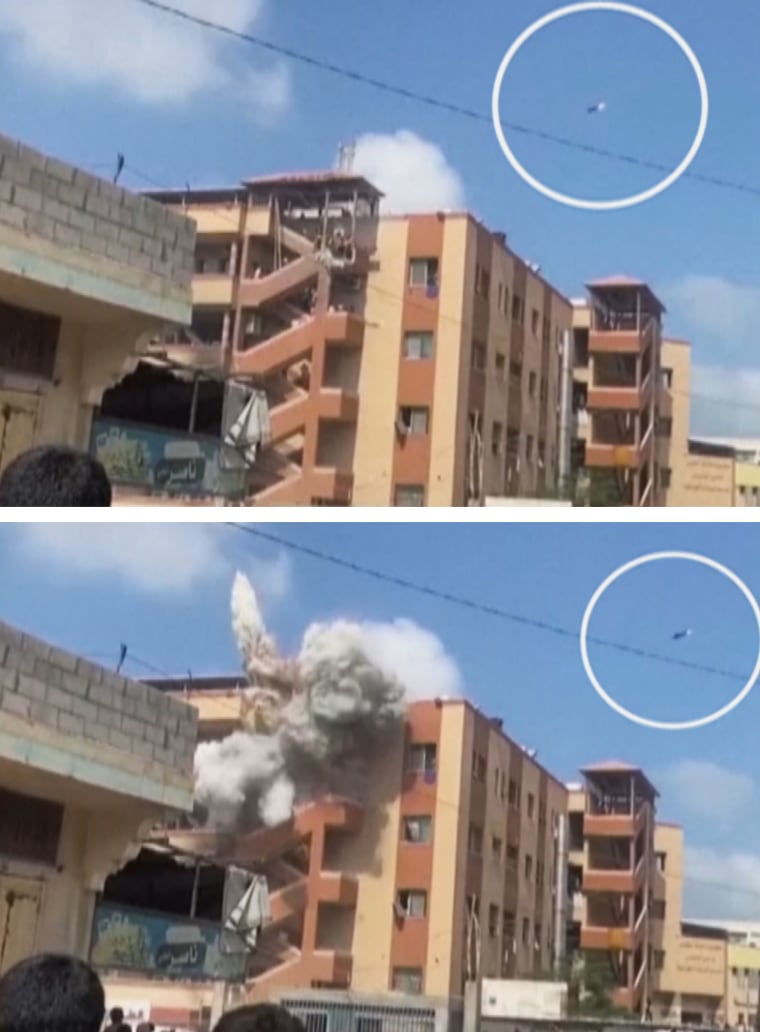
Minutes later, at 10:17 a.m., after journalists and first responders arrived on the staircase used by journalists — including men carrying a gurney seen on video wearing clearly identifiable high visibility vests — a second strike hits.
Video obtained and verified by NBC News shows two additional projectiles striking the fourth-floor staircase within milliseconds of each other. Plumes of smoke can be seen rising from all affected areas.
N.R. Jenzen-Jones, director of the arms intelligence firm Armament Research Services, said video of the incident after the first strike pointed to a direct-fire weapon, with damage “consistent with that expected from a multi-purpose tank gun projectile.”
Video of the second strike also appeared to show two projectiles, he said. Their flight pattern and “bright emission… more likely to be from a tracer” suggested they came from tank rounds, Jenzen-Jones said. The timing, he added, implies “two tanks may have fired on the target simultaneously.”
The Israel Defense Forces did not respond to a request for comment on the newest revelations. The IDF has not provided NBC News with any additional information since it released preliminary findings on Tuesday.
In its initial inquiry, the IDF said troops had identified a camera at the hospital “positioned by Hamas” that was being used to observe its activity. It added that “troops operated to remove the threat by striking and dismantling the camera.”
But according to multiple eyewitnesses on the ground, including journalists and doctors at the hospital, there was only one camera positioned on the roof of the hospital: al-Masri’s Reuters camera.
Reuters said Thursday that “Israel was fully aware that Reuters and multiple other news organizations were operating from Nasser Hospital.”
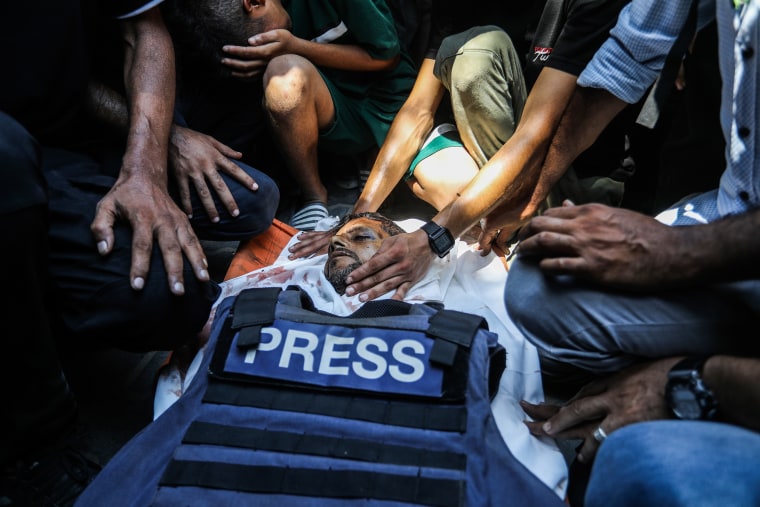
Journalist Ibrahim Qanan, who was reporting live on Alghad TV at the time of the second strike, told NBC News that “Reuters and AP have a specific location, the highest location.”
Mohammed Saqer, director of nursing at Nasser Hospital, said Wednesday that the Israeli military “could have called us” if it had any trouble, saying the “the IDF knows our numbers.”
“We simply could have just removed the camera,” he said.
Hours after the attack, Israeli Prime Minister Benjamin Netanyahu said Israel “deeply regrets the tragic mishap.”
The Israeli military, which did not provide evidence to substantiate the claims that Hamas ran a camera on the roof of the hospital or address the multiple strikes on the facility, added that an investigation had been ordered into “several gaps,” including the “authorization process” before the attack.
Bassem Naim, a senior Hamas official, denied the group had any camera in the area.
Video of the aftermath showed smoke rising and damage at both staircases.
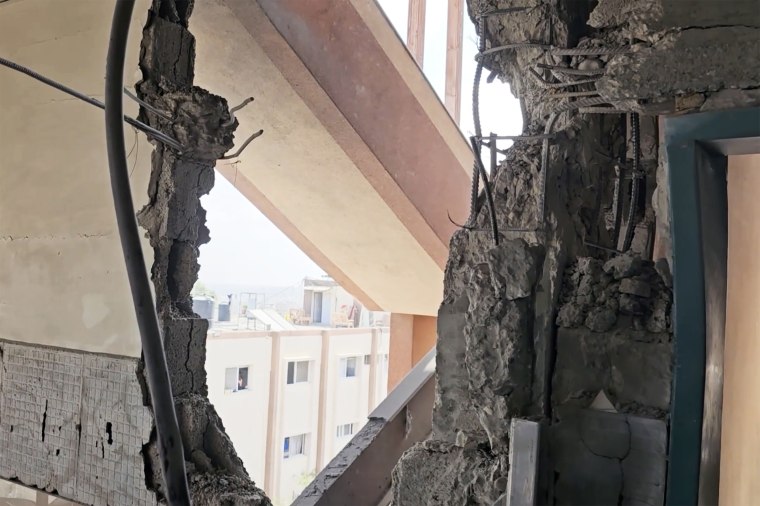
Dr. Osama Asfour, a member of the board of directors of Nasser Medical Complex, said the strike hit the area around the ICU, and operating rooms had so much damage the hospital was forced to halt surgeries for the day.
“The targeting of the northern side led to the disruption of the electric line, water and communications, causing destruction inside the surgery rooms and resulting in halted operations for a full day,” Asfour said.
Molly Hunter reported from Jerusalem, and Matthew Mulligan and Freddie Clayton reported from London.

